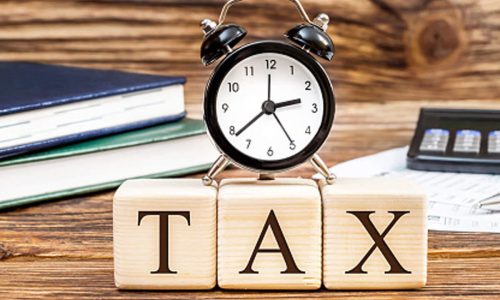KNOW THE LAW 03/08/2022
How To Calculate PAYE Tax In Nigeria

Personal Income Tax (PIT) is a tax imposed on individuals including employees, partners in a partnership, unincorporated trusts, joint ventures, families and communities. It is imposed based on source and residency rules. The two key legislation are the Personal Income Tax Amendment Act 2011 (PITAM) and Finance Act 2020.
Personal Income Tax in Nigeria is on a Pay As You Earn (PAYE) basis, which means that the tax is deducted at the source by the employer as the employee earns the income. Every person who earns income either from employment or from running his own business must pay PERSONAL TAX to the State Internal Revenue Service. For those in employment, it is the responsibility of the employer to deduct tax from employee’s salaries and remit it to the relevant State Internal Revenue Service or FCT-IRS in the case of employees’ resident within the Federal Capital Territory. The people who run their own businesses have the responsibilities to pay their PAYE tax to relevant authorities.
In Nigeria, PAYE Income Tax is a calculation based on the amount you earn. Income tax is calculated on a threshold basis with different rates applied depending on your income.
Schedule 6 PITA
In accordance with Schedule 6 of PITA, the following guide can be followed in calculating the PAYE tax.
| Annual Taxable Income (NGN) | Rates | Tax payable per annum (NGN) |
| First 300,000 | 7% | 21,000 |
| Next 300,000 | 11% | 33,000 |
| Next 500,000 | 15% | 75,000 |
| Next 500,000 | 19% | 95,000 |
| Next 1,600,000 | 21% | 336,000 |
| Above 3,200,000 | 24% | Multiply only the excess amount over NGN 3.2 million by 24%. For example, an annual taxable income of NGN 5 million is (5-3.2) million *24%= NGN 432,000. |
Those earning minimum wage or less from employment are exempted from personal income taxes.
As a result of the consolidated relief allowance of at most 21% of gross income, the top marginal tax rate is 18.96% for income above ₦20 million as only 79% of income is taxed at 24%, while for income below ₦20 million the top marginal rate is 19.2%.
Every taxable person (excluding persons who earn the minimum wage or below) is liable to a minimum income tax of 1% of their gross income. This is triggered where the actual tax payable after all reliefs and allowances is less than 1% of gross income. Minimum tax will not apply to a person in any year of assessment where such person earns the National Minimum Wage or less from an employment.
Treatment of Benefits in Kind (S.4, 5) PITA
Benefits in Kind (BIK) provided to an employee by the employer such as official cars, accommodation, etc. are deemed to be part of the employee’s gross emoluments. For items other than accommodation, the deemed annual benefit is 5% of the cost where the asset is owned by the employer, or the actual rent paid where the asset is leased by the employer.
BIK on accommodation is taxable based on the annual value of the premises as determined for purposes of local rates or as determined by the relevant tax authority.
Other things to take notice of concerning PAYE
- Filing and due dates {S.41(3)} PITA
Individuals are to file returns not later than 31 March annually in respect of the preceding year.
Employers are required to file the following documents:
- Employers’ Declaration Form (Form H1): showing the income of the employees, taxes deducted and remitted in the preceding year. This is due by 31 January.
- Employers’ Remittance Card (Form G): showing the monthly remittances and reference number on the receipt. Copies of the receipt are to accompany the form G.
- Declaration of estimated income and application for tax reliefs (Form A).
- Due date for payment {S.41(3), 81} PITA
PAYE must be remitted on or before the 10th day of the month following the payment of salary (e.g., PAYE tax deducted from January salary should be remitted by the 10th of February).
For individuals under direct assessment, payment must be made along with returns within 90 days of the fiscal year i.e., not later than 31 March.
- Correspondence – Notice of Assessment and Objections (S.58) PITA
Courier service, email and other electronic means are validly recognized as means of correspondence for issuance of assessment and raising valid objections.
- Penalty for non-payment of tax (S.76, 77) PITA
The penalty for non-payment of PAYE is 10% per annum of the amount plus interest on an annual basis at the bank lending rate (in practice a one-off interest rate of 15% to 21% is applied). Late filing attracts a fine of ₦500,000 in the case of corporate bodies, and ₦50,000 in the case of individuals
- Statute of Limitation (S.55) PITA
The limitation applicable to PAYE tax liability is 6 years except in the event of fraud, willful default or neglect by the taxable person in which case there is no limitation.
Conclusion
The new Finance Bill signed into law on the 13th of January 2020 places more stringent penalties for default of payment of PAYE tax. It is a wake-up call for individuals and every Nigerian business owner to understand and diligently remit PAYE taxes to the relevant authorities.



